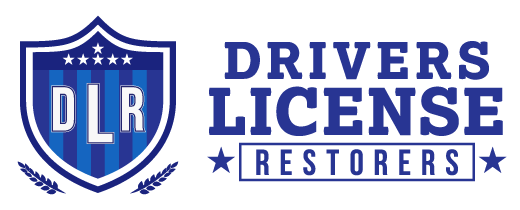We’re all aware of the risks of driving under the influence, particularly when it comes to our own livelihood, as well as that of others we care about. However, as human beings, we often make mistakes.
Perfection is an illusion. When it comes to alcohol and drugs, very few can say they’ve never tried them and didn’t do anything utterly stupid while under their influence.
Driving while intoxicated or driving under the influence occurs fairly frequently, despite the risk and potential dangers that we’re all aware of. Here’s just a few of the DUI statistics in the United States:
- Alcohol is involved in about 40% of all fatal car crashes.
- Drinking and driving claims more than 15,000 lives per year
- Alcohol-related crashes cause an estimated $51 billion in damages each year
- A drunk driver has driven drunk an average of 80 times before their first arrest
- Every 2 minutes a person is injured in a drunk driving crash
- In 2015, 29.1 million people admitted to driving under the influence
- 1 person is killed every half-hour due to drunk driving
As the deaths and injuries continue to rise in the United States, law enforcement and the justice department as a whole, are cracking down on offenders with harsher penalties for convictions. The message is clear, there is zero tolerance for driving while intoxicated or under the influence in our country.
Unfortunately, many people are unaware of the consequences of a DUI conviction in our country and often think such a situation could never possibly occur in their lives.
However, one momentary lapse of judgment can change your life forever, unless you take the time to educate yourself on the proper ways to deal with a DUI charge.
Consequences for First-Time DUI
Punishments often vary from state to state and even at times, county to county, due to differing legislation. In some states, a first-time DUI offense, automatically results in jail time, as well as a suspended driver’s license. With the increased crackdowns across the country, judges are being encouraged to hand out harsher fines and penalties, even if it is a first time conviction.
If you had a minor or other passengers in the car at the time of arrest, this could lead to a stiffer punishment as you directly put their lives in danger as well.
Remember one thing, DUI is a criminal charge. This means, it will be on your record and could affect future job opportunities and government assistance.
So while many may think a first-time DUI or DWI will only result in a misdemeanor charge, fine, and/or suspended driver’s license, without proper legal counseling the results of the conviction could dramatically change your life.
For first-time offenders, where no one was physically harmed, you could face up to six months in prison and in many states, a mandatory minimum of a few days behind bars. In the past, it was common for first-time offenders to have your driver’s license suspended and you would have to take mandatory alcohol and drug education classes and/or be sentenced to hours of community service.
Additionally, some states have more severe punishments in place for offenders with high blood-alcohol content (BAC) at the time of arrest. The legal limit across the United States, excluding Utah, as they have lowered their legal limit, is 0.08%.
If at the time of arrest, you have a high BAC of around 0.15% or 0.20%, you automatically qualify for a more severe punishment, even as a first-time offender.
It’s important to be aware of this.
Driver’s License Suspension First-Time Offenses
As far as a driver’s license suspension, a DUI or DWI offender will likely have their license suspended for a significant period of time. For most states, the length of time looks something like this:
- First offense: 90 days
- Second offense: 1 year
- Third offense: 3 years
If at the time of arrest, you refused to give a blood, breath, or urine test, your encounter would be deemed an aggravated circumstance. Such a situation, results in an automatic license suspension even if the judges rules that you were not guilty during your court appearance. Some states even have harsher penalties in addition to license suspension for such an act.
When you are stopped and you’re aware of the fact that you’ve been drinking and driving, the best approach is to be honest with the law official and cooperate with all tests. Not only will this reflect well upon you during court proceedings, but you also may avoid more severe penalties.
In the end, it was your lapse in judgment which ultimately put you in this position. Do not compound your mistake by appearing aggressive or uncooperative at the time of arrest.
Underage First-Time DUI Offenders
Unfortunately, most DUI first-time offenders, are under the age of 21 years old. In these instances, the punishment can be more severe because in essence, there are more laws that have been broken.Additionally, some states have in legislation, that a underage driver who is stopped on suspicion of driving while intoxicated or driving under the influence, can be arrested for a BAC of only 0.02%.
This is a significant difference than the limit of 0.08% that legal overage drinkers are accustomed to. Under these circumstances, the court can impose adult sentences on minors and suspend their driver’s license for one year. In most cases; however, underage DUI offenders are given mandatory community service and/or alcohol and drug education classes. In Texas, community service is mandatory, no matter the additional penalties.
As a parent, it’s important to educate both yourself and also your child about the consequences of a DUI or DWI conviction. We are all aware that a significant portion of minors consume alcohol or even illicit drugs. What’s important is that if and/or when, they are going to do such acts, they’re encouraged to be responsible.
Additional Personal and Professional Consequences
You should also keep in mind that DUI or DWI convictions can impact your professional life as well. Not only will they appear on your record as a misdemeanor criminal charge for first-time offenses, but they can also prevent an employer from potentially hiring you. Even if you’re not driving as part of your job, employers may see a conviction on your record and simply eliminate you from consideration.
Additionally, your insurance company will at the very least raise your premium, which for those who have a tight budget, can severely impact your financial situation. It’s also been known, in extreme cases, for insurance companies to cancel your policy all together for a DUI or DWI conviction.
What About if Injuries Occur as a Result?
It’s one thing to simply be arrested during a traffic stop for DUI or DWI. You’ll find yourself in much hotter water if someone either in your vehicle or in another driver’s vehicle is injured as a result of you driving impaired.
Such a situation is referred to as causing someone, serious bodily harm (SBH).
SBH consists of the following:
- Unconsciousness
- Severe physical pain
- Protracted or permanent injury to a bodily organ
- Injuries entailing considerable risk of death, such as profuse bleeding
- Protracted or obvious disfigurement, such as burn wounds that last over an extended period
- Loss of one’s mental faculties
Under these circumstances, you could find yourself charged with a felony and face an extended amount of time in prison. Additionally, you would be stripped of your driver’s license.

How to Fight a DUI Charge
The best approach for any person who faces a potential DUI or DWI conviction, is to seek legal counseling from a professional DUI attorney. Strategies may differ depending on the circumstances of your arrest.
For instance, if you were cooperative and didn’t cause an accident or injury to anyone else, your strategy would differ from that if you were involved in an auto accident as a result of driving impaired. Understand that as human beings, we all make mistakes and this is often true for law enforcement as well.
Many individuals, with the assistance from a hired attorney, are found not guilty due to mistakes made by officers. Some of these mistakes can include:
- Inappropriate DUI testing such as a faulty breathalyzer examination
- Unlawful traffic stop/arrest
- Inadequate proof of the arrest
As a civilian, you’re not trained to represent yourself in these situations. Therefore, it’s always best to hire someone who is experienced and knowledgeable with the ins and outs of DUI and DWI defenses. Remember, while we all make mistakes, you should never compound your original lapse in judgement. Hire an attorney and you may avoid a life-alerting conviction.

